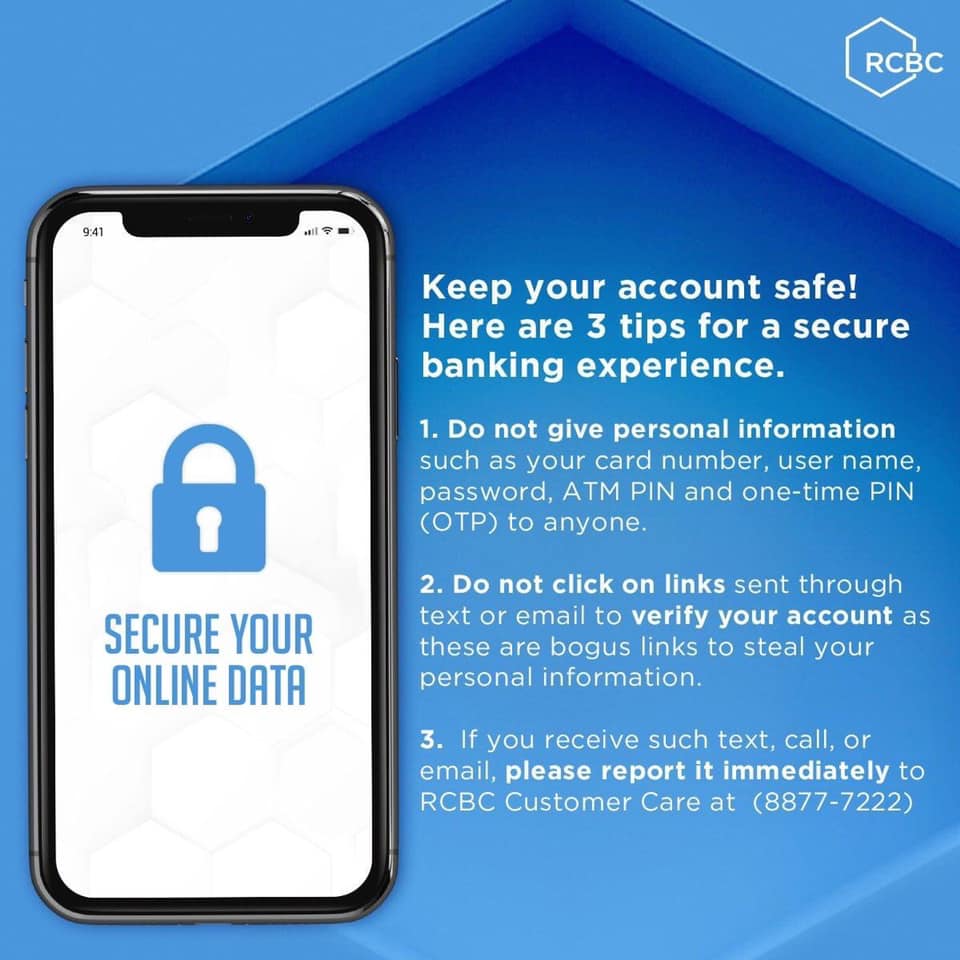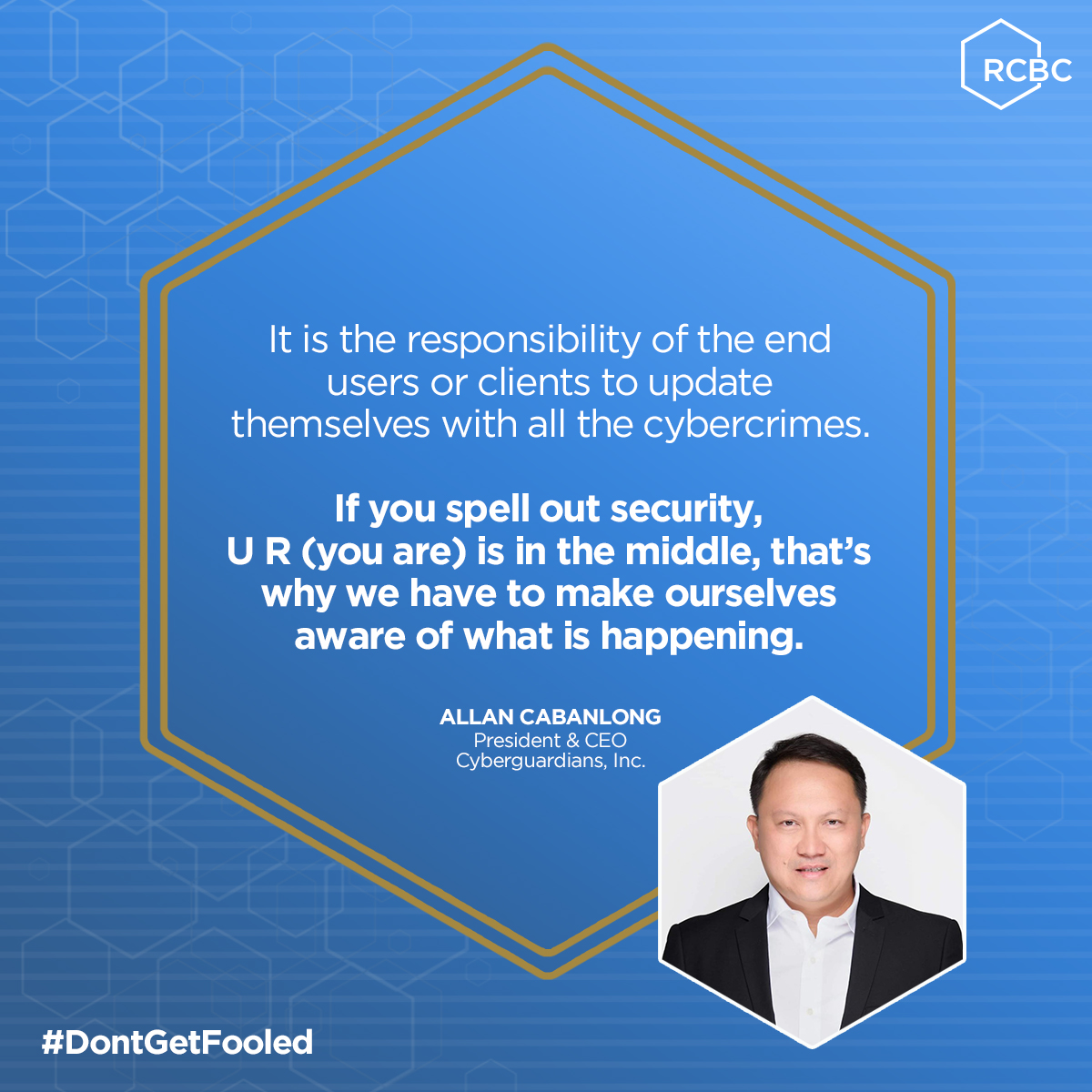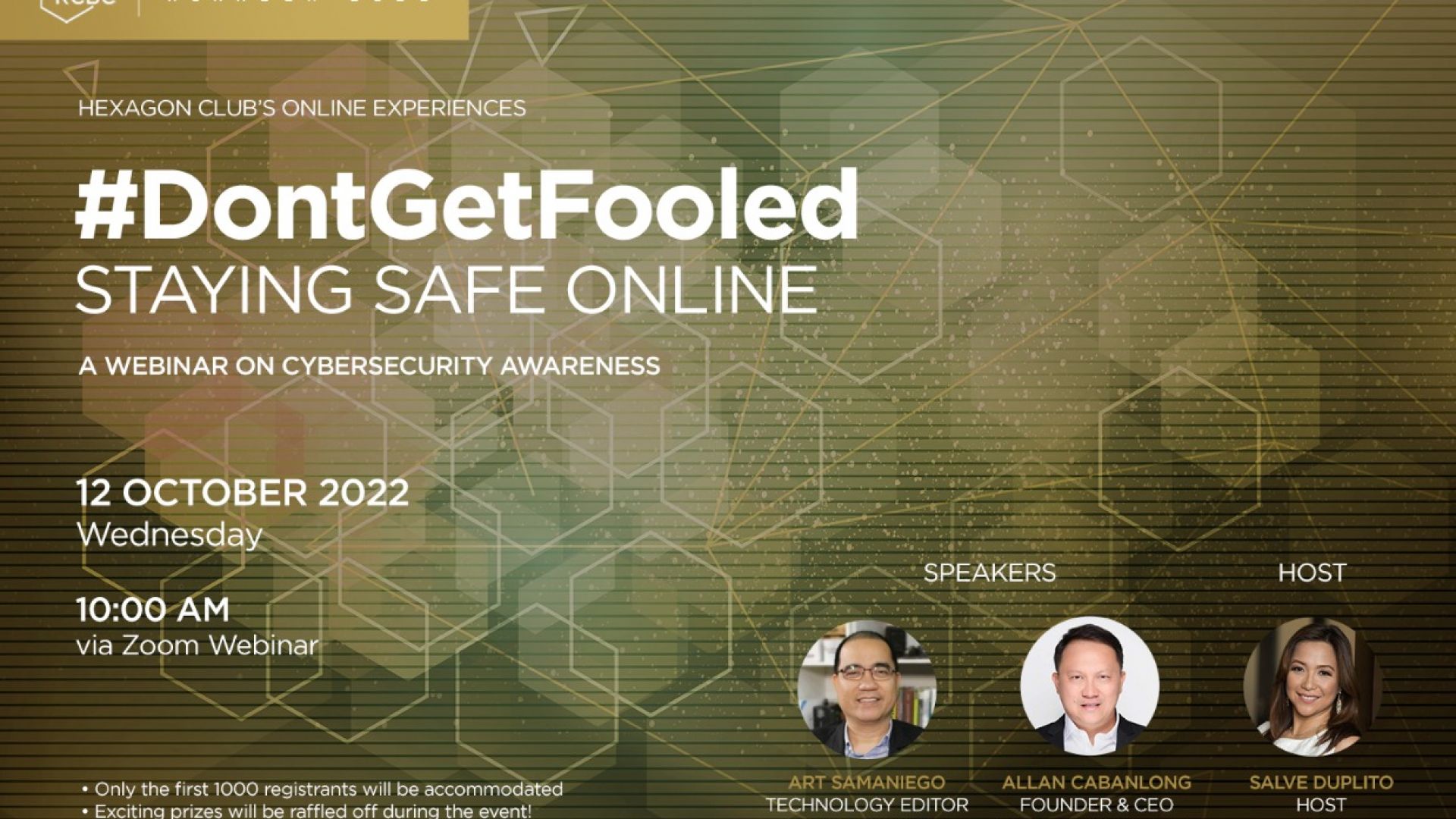Scams and frauds designed to gain access to your online profiles—including your digital banking accounts—have been around for years now. But they have noticeably been more frequent and aggressive lately. For instance, you have probably received SMS messages with suspicious-looking links. What’s scary is how these messages now have your name, making them look more legitimate. Others have gotten phishing emails that, at first glance, seem like formal communication from banks or other financial services. It’s becoming harder to distinguish what’s fake from what’s real.
And if you may think it’s easy to identify these schemes, you would be surprised to know that these scams are becoming more and more sophisticated everyday. For one, there are scams, specifically made to target you and your own online habits to better catch you off guard. As scammers evolve their tactics quickly, more and more people have fallen victim to these fraudulent online attacks. In this article, learn some tips and steps on how you can protect yourself from cyber fraud attacks.

Don’t give out personal info mindlessly
Cyber fraud attempts work by making you believe you are talking to a legitimate financial organization or a trusted institution. The email or messages they send will address you by name and often contain personal information no one else should be privy to aside from the companies and services you officially do business with. These scams collect your information beforehand by perusing your social media accounts and other public online forums. Sometimes, the attempts are more targeted: sending you supposed online forms you need to fill up or calling you directly to ask for your personal information in the guise of confirming it for a service or promo.
Treat your personal information as a valuable asset as it is the key that fraudsters use to trick you to unlock your account. Do not post your full name, birth date, address, and other information related to your digital accounts online. Be wary of strangers trying to add you as a contact on your social media accounts as well, as this could simply be a way to get information out of you for future, more specific fraud attempts. To be sure, financial organizations and trusted companies will not call to ask for your info. And they will not call you using an unofficial contact number unprompted.
Be cautious of who you talk to
Scams are made to make you lower your defenses and give out information that could allow fraudsters to access your financial accounts. Often, this is done through emails purportedly from official institutions designed to make you reveal important info such as bank account passwords, credit card details, and digital bank app details. And now, these frauds use SMS and video calls too.
You can detect a scam message by looking at some telltale signs. Scam emails, for instance, usually come from a public email domain account and not the official company email. Some fraud attacks have legitimate-looking email addresses but with a carefully placed misspelling to make it seem official. If you receive a supposed email from your bank that has some typographical errors, it’s a telltale sign.re more direct, asking for your password, card expiry date and CVV, or one-time password (OTP) via video call. A trusted company would never ask for such details via an email, SMS, phone, and video call.
Be mindful of your online—and offline—action and habits
The techniques today usually involve a link that scammers will entice you to click or visit through a promise of job offers or online shopping discounts, among others. These links can lead you to malicious websites that download viruses, ransomware, and other types of malware to your device. Malware is a software that can damage your device. At its worst, it can give scrupulous individuals unauthorized access to your device—and ultimately, all the information stored and saved there. Hence, you should be careful when you receive links from unknown or suspicious individuals. Don’t click links from unknown origins. With telecommunication services starting to ban links in SMS, scammers have used creative ways to include them in their text messages, such as playing with the typography or adding spaces in the website URL. It takes a bit more effort to access the link now, but it also means you still get disruptive spam messages.
But you need to be mindful of your offline actions, too. Scammers don’t just rely on online schemes to get your information. There have been reports, for instance, of scammers approaching you in public, asking to borrow your phone due to an emergency only to try to get your digital bank details and OTP. Others simply look over your shoulders when you make online transactions in public. The rule of thumb is to always keep sensitive information protected. Do not share it with anybody, and make sure your device is secured and out of the sight of other people when you make transactions online in a public place.
But cybersecurity is a shared responsibility between you and your financial service providers. As you take steps to make sure your financial accounts remain safe, your bank should take every step possible with its features, services, and even cyber security education to ensure your hard-earned money is secure and away from the hands of scrupulous online scammers.
RCBC’s fight against cyber fraud
As Rizal Commercial Corporation (RCBC) continues its thrust to accelerate digital adoption with secure and convenient digital services, it also carries on the fight against cybercrime. RCBC believes that the push for digital banking goes hand-in-hand with efforts to provide efficient and secure service.

During RCBC’s #DontGetFooled: Staying Safe Online webinar on security awareness held on October 12, 2022, RCBC Chief Information Security Officer Carlos Tengkiat reiterated how successful online fraud has been in targeting individuals, but has yet to successfully infiltrate organizations, particularly banks and other financial services. “The banking industry is constantly evolving, not only to cater to your needs but also to deliver these convenient services in a secure manner,” Tengkiat said, noting that RCBC is constantly working with other banking institutions, telecommunication companies, and government services to help provide this security. He reiterated RCBC’s digital banking app offers many security features such as two factor authentication, support of biometrics, mandatory change of password for online banking, card locking for lost and misplaced cards, and real-time SMS and email notification for banking transactions, among others. “This is part of our thrust as we aim to educate our customers on how to conduct electronic banking safely.”
He added, “Security, like banking, is a partnership. And we at RCBC are dedicated to be your partner in your journey.”



